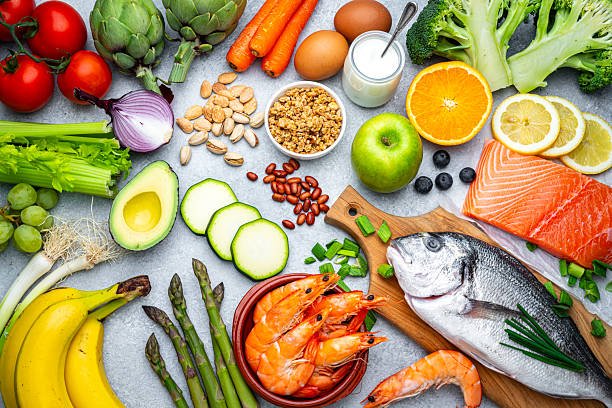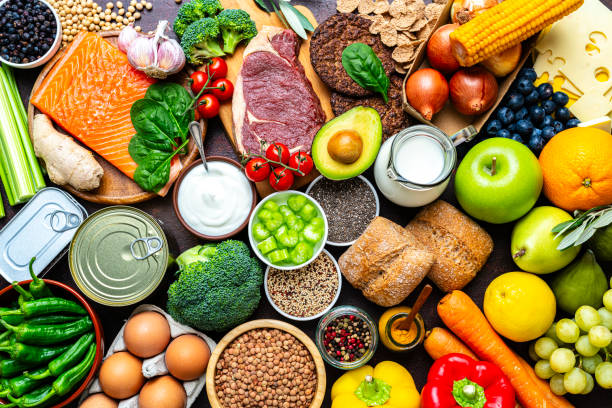In a world overflowing with health advice, contradictory headlines, and social media influencers touting miracle diets, choosing the right nutritional path can feel more confusing than ever. Two dietary approaches dominate the conversation today: the plant-based diet and the ketogenic (keto) diet. Both have devoted followers, scientific backing, and plenty of success stories, but they couldn’t be more different in philosophy and execution. One prioritizes fruits, vegetables, grains, and legumes. The other relies heavily on fats and proteins, often from animal sources, while nearly eliminating carbohydrates.
So which is better for your health, energy, longevity, and weight goals? Is there a clear winner, or is the answer more nuanced than the latest Instagram post or fitness blog would have you believe? To answer that, we must dive deep into the science, history, and personal experiences behind these dietary trends and uncover not just what they are, but what they do to the body and brain.
Understanding the Plant-Based Diet
Let’s start with the plant-based diet, often synonymous with veganism or vegetarianism, but with its own unique definition. A plant-based diet emphasizes whole, minimally processed plant foods. It’s about filling your plate with vegetables, fruits, whole grains, legumes, nuts, and seeds. It doesn’t necessarily require you to give up all animal products, but they take a backseat in this eating pattern.
The appeal of the plant-based approach lies in its roots in natural, nutrient-dense foods. It champions fiber, antioxidants, vitamins, and a colorful plate. It’s been associated with reduced risk of chronic diseases, lower blood pressure, and healthier body weight. It’s also deeply tied to environmental sustainability and animal welfare, adding ethical and ecological dimensions to its health claims.
Many people find this diet energizing and refreshing. Imagine starting your day with a smoothie packed with spinach, bananas, berries, and flax seeds, followed by a hearty lunch of quinoa, roasted vegetables, and tahini dressing. Dinner might be a lentil stew or a chickpea curry with brown rice. It’s a diet that offers variety and flavor without counting calories or carbs.
Getting to Know the Keto Diet
Now let’s meet keto, the high-fat, low-carb contender. The ketogenic diet is not new—it’s been used medically since the 1920s to treat epilepsy—but it’s only in recent years that it became a mainstream weight loss and performance-enhancing tool. The principle is simple but radical: dramatically reduce carbohydrate intake to induce a metabolic state called ketosis, where the body burns fat for fuel instead of glucose.
A typical keto meal includes meats, fatty fish, cheese, eggs, butter, oils, nuts, and low-carb vegetables like spinach or broccoli. Grains, most fruits, legumes, and sugars are almost entirely eliminated. The promise? Rapid fat loss, stabilized energy levels, and better control over blood sugar and appetite.
Proponents of keto often talk about mental clarity, reduced hunger, and increased stamina. It appeals to those who love structure and the indulgence of foods like bacon, cheese, and avocados without worrying about the calorie count. But it’s also a diet that demands discipline and a willingness to say goodbye to bread, pasta, and fruit smoothies.
Nutritional Comparison: How the Two Diets Fuel the Body
At their core, the plant-based and keto diets take opposite paths to wellness. Plant-based diets rely on carbohydrates for energy—think sweet potatoes, brown rice, and bananas. These complex carbs provide glucose, the brain’s preferred fuel, along with fiber, which promotes gut health and satiety. A high-carb intake can seem counterintuitive in today’s carb-fearing climate, but when those carbs are whole and unrefined, they offer profound health benefits.
Keto, on the other hand, flips the script. By restricting carbs to less than 50 grams per day (sometimes as low as 20), the body begins converting fat into ketones, an alternative fuel. This switch in metabolism is powerful and has been shown to reduce hunger, improve insulin sensitivity, and support weight loss—at least in the short term.
But each diet comes with its own nutritional strengths and weaknesses. The plant-based diet is rich in vitamins, minerals, and phytonutrients but can be low in vitamin B12, iron, and omega-3 fatty acids unless carefully supplemented. Keto provides plenty of fat-soluble vitamins and can be rich in protein and fats but may lack fiber, certain antioxidants, and, if poorly formulated, may include unhealthy processed meats or excessive saturated fats.
The Science of Weight Loss: Which Diet Does It Better?
For those chasing weight loss, the million-dollar question is: which diet burns fat more effectively? The answer isn’t as straightforward as you might hope. Both diets have been shown to support weight loss, but they do so via different mechanisms.
Keto often leads to rapid initial weight loss due to water loss and a suppressed appetite, thanks to stable blood sugar and insulin levels. Many people find it easier to eat fewer calories without trying, which is the cornerstone of any effective weight loss plan. In several clinical trials, keto outperformed low-fat diets for short-term weight loss.
However, plant-based diets also lead to weight loss, especially when focused on whole foods rather than processed vegan alternatives. Fiber plays a crucial role here—it fills you up, slows digestion, and improves the gut microbiome, all of which support a healthy weight. Long-term studies suggest that vegetarians and vegans tend to have lower body mass indexes (BMIs) than omnivores.
The truth is, weight loss depends more on the quality of the diet and adherence than on macronutrient ratios alone. Whether you lose weight on keto or a plant-based plan may come down to which one you can sustain and enjoy.
Heart Health and Chronic Disease: What the Research Shows
The plant-based diet has an edge when it comes to cardiovascular health. Decades of research have linked diets rich in fruits, vegetables, whole grains, and legumes with lower risks of heart disease, stroke, and hypertension. Fiber helps lower cholesterol, while antioxidants reduce inflammation and oxidative stress. The famous Blue Zones—regions of the world with high concentrations of centenarians—are all plant-focused in their diets.
Keto’s impact on heart health is more controversial. While it can improve triglycerides and HDL cholesterol, some studies have shown increases in LDL cholesterol (the “bad” kind) when the diet includes high amounts of saturated fat. The quality of fats and proteins matters greatly. A keto diet based on olive oil, nuts, and fatty fish will be far healthier than one focused on bacon and butter.
Beyond heart health, the plant-based diet shines in diabetes prevention, cancer risk reduction, and longevity. Keto shows promise for managing type 2 diabetes and neurological disorders but may pose risks if followed without proper planning or medical supervision.
Brain Health and Cognitive Function
Your brain is a hungry organ, using up about 20% of your energy intake. How your diet fuels your brain can affect memory, mood, and cognition. Here again, both diets claim benefits but in different ways.
Keto enthusiasts often report improved mental clarity and focus, possibly due to the steady energy provided by ketones. There’s some evidence supporting keto for epilepsy and possibly neurodegenerative conditions like Alzheimer’s disease, though more research is needed.
Plant-based diets support brain health through antioxidants, omega-3-rich seeds, and a robust gut microbiome, which has been linked to cognitive resilience. Some studies suggest that high meat consumption, especially processed meats, may increase dementia risk, while plant-based patterns are associated with better brain aging.
Ultimately, cognitive benefits likely depend on overall diet quality. Whether keto or plant-based, real food wins over processed junk every time.
Energy, Athletic Performance, and Daily Vitality
Can you lift heavy weights or run marathons on plants alone? Can keto provide enough fuel for intense workouts? These questions matter, especially for athletes and active individuals.
Plant-based athletes like Venus Williams and Scott Jurek have proven that endurance, strength, and stamina can flourish without animal products. Carbs are the body’s preferred energy source during high-intensity exercise, making plant-based diets ideal for sports requiring bursts of speed or long durations.
Keto, on the other hand, is gaining popularity in the endurance sports world. Ultra-runners and low-intensity athletes may benefit from fat-adaptation, where the body becomes efficient at burning fat for fuel. However, during high-intensity anaerobic activities, the lack of glycogen from carbs can be a limiting factor.
Energy levels on both diets depend heavily on meal quality and micronutrient balance. A junk-food vegan diet can leave you sluggish, just as a bacon-heavy keto diet can drain your stamina. Nutrient-dense, whole foods are the true secret to sustained vitality.
Ethical and Environmental Considerations
Beyond personal health, both diets carry broader implications for the planet and animal welfare. A plant-based diet has a clear advantage in terms of sustainability. Producing plant foods generally uses fewer resources, generates fewer greenhouse gases, and causes less deforestation compared to animal agriculture. Reducing meat and dairy consumption is one of the most impactful individual actions one can take to fight climate change.
Ethically, the plant-based diet appeals to those concerned with animal rights and cruelty. Veganism, in particular, stems from a philosophy of minimizing harm to all sentient beings. Choosing lentils over lamb isn’t just a nutritional decision—it’s a moral one for many.
Keto can be environmentally burdensome if it relies heavily on meat and dairy, but it doesn’t have to be. A well-planned keto diet can include plant-based fats like olive oil, nuts, avocados, and coconut. There’s even a growing trend of “plant-based keto,” merging the two approaches in a more sustainable way.
Real People, Real Results: Stories from Both Sides
What do real people say about their experiences? The testimonials are as varied as the diets themselves. Many report feeling lighter, clearer, and healthier on plant-based diets. Chronic issues like high blood pressure, acne, and bloating often improve. There’s a sense of peace that comes from eating food grown in the earth, not manufactured in factories.
Keto followers, meanwhile, speak of mental sharpness, fewer sugar cravings, and dramatic weight loss. People with type 2 diabetes often report better blood sugar control, while others appreciate the reduced appetite and freedom from constant snacking.
But challenges exist on both sides. Plant-based eaters sometimes struggle with cravings, social dining, or nutrient deficiencies. Keto dieters may face the dreaded “keto flu,” digestive issues, or difficulty sustaining the strict carb limits. No diet is perfect, and long-term success depends on personalization, not perfection.
Can the Two Diets Coexist?
Interestingly, some health professionals advocate for a middle path. Why not combine the best elements of both? This hybrid approach might involve emphasizing plant-based foods while incorporating keto principles, like controlling blood sugar and eating healthy fats. It means choosing olive oil over butter, avocados over cheese, and leafy greens over processed vegan snacks.
Some nutritionists promote a “cyclical keto” strategy or a Mediterranean-keto model, rich in fish, vegetables, nuts, and olive oil. Others advocate for a whole-food, plant-heavy keto diet, minimizing animal products and maximizing plant fats. These evolving interpretations show that nutrition isn’t black and white—it’s a spectrum.
The Verdict: Which Is Better for You?
After all the science, stories, and speculation, the question remains: which diet is better for you?
If your goals include long-term health, heart protection, ethical living, and sustainability, a well-planned plant-based diet may be the ideal choice. It’s rich in fiber, micronutrients, and antioxidants, and it aligns with values beyond nutrition.
If your priorities include rapid fat loss, appetite control, or managing certain medical conditions like epilepsy or insulin resistance, keto might offer unique benefits. It’s a powerful metabolic tool when used wisely and under supervision.
Ultimately, the best diet is the one that works for your body, lifestyle, and beliefs. It’s the one you can follow joyfully, without obsession or deprivation. It’s the way of eating that nourishes not just your physical health but your emotional and social well-being. And that might be keto, plant-based, or something beautifully in between.






